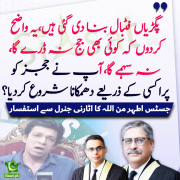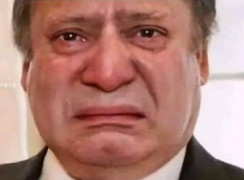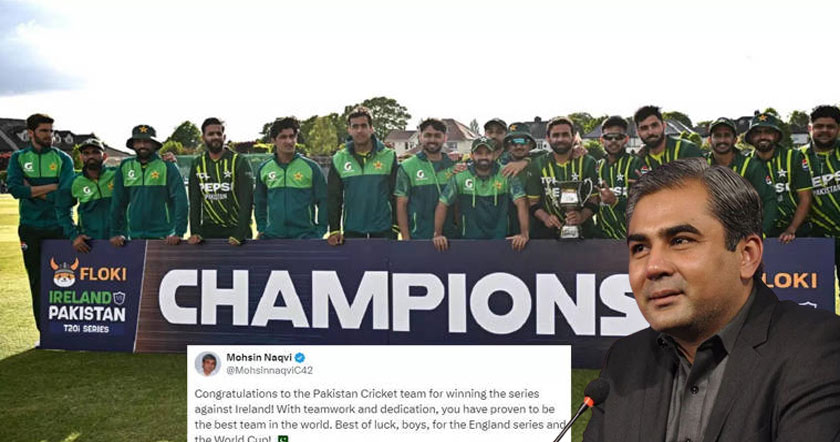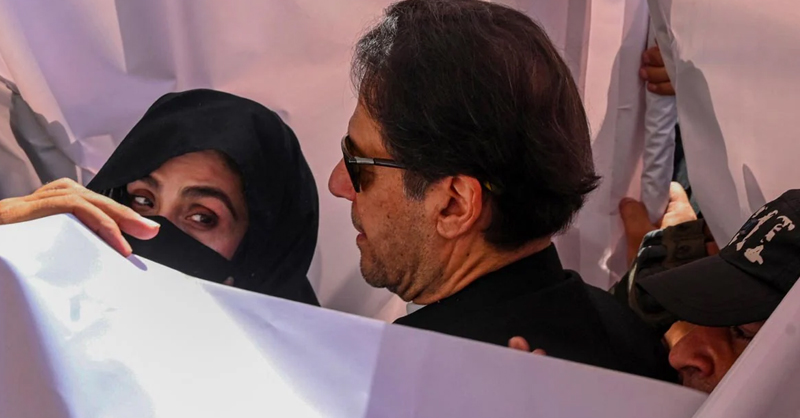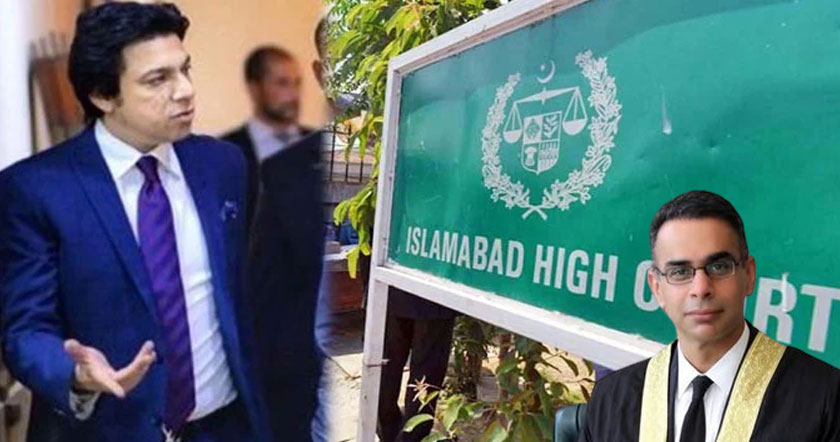Karachi grows at a rate of a thousand new residents every day. How do governments ensure the health infrastructure can keep up?
This was one of the questions I was invited to answer at the Emerging Markets Symposium organised by Oxford University an international gathering of former mayors, government ministers, urbanisation and health policy experts and economists to discuss the best approach to the combined challenge of urbanisation and health in emerging market countries.
We know the balance of the global economy is tilting to new markets across the planet. Commentators are urging us to look beyond the so-called BRICs (Brazil, Russia, India and China) and to vibrant economies across Latin America, Europe and Asia not in the least, Pakistan.
But we must look further than national economies and focus on the specific challenges posed by cities as drivers of growth. Cities will be the source of path-breaking economic and social innovation in the future global economy. Karachi is a prime example of this.
The overall concern we identified has to do with governments ability to respond to the evolution of health problems in their population. According to the World Health Organization (WHO), Pakistan has four times the average rate of infectious diseases, with a particular prevalence of water-borne disease, but is simultaneously facing a rapid rise in non-communicable diseases, associated with the lifestyles developing in its cities.
Cities in emerging market countries are also the main source and catalysts of GDP. And with health transformations, described above, taking place at record speeds, governments must ensure they have the means to keep up.
On a global level, we see urban infrastructure gradually reorganising the planet: Half of the worlds population now lives in cities. By 2050, it is estimated that this will rise to 80 per cent.
Regional specifics also matter; many Latin American countries are more than 70 per cent urban with numerous small and medium cites. By contrast, in Pakistan, the urban population stands at a little more than 30 per cent with concentrated pressure placed on individual cities, starting with Karachi. This makes the importance of developing healthy urban spaces even greater. In other words, the health of Karachis population carries the weight of the countrys growth on its shoulders.
This concept asks a host of questions, the first one being, How should governments plan to tackle this challenge? And, of course, What is to be done?
A key point which emerged is how different cities are governed. The former mayor of Bogota, Enrique Pealosa, explained the singularities of the citys Capital District status, which means the mayor wields the most governing powers over his city. Pealosa told of his focus of getting the city to buy land to facilitate long-term infrastructure planning. I explained that the land Karachi sits on actually belongs to the provincial government and that the city is governed, in one way or another, by thirteen different agencies!
City governance is the fundamental point, which underpins a central idea I took away from Oxford; every area of government has an impact on health. Education, road infrastructure, sanitation all have a bearing on the wellbeing of populations and can remove pressure on healthcare services themselves by focusing on preventive, holistic solutions. A focus on health imperatives gives a compelling argument for better coordination at all levels.
Within a wider concern for public health, healthcare services themselves are an area where innovation will dictate the future shape, reach and cost of keeping millions of people healthy. In Pakistan, we have seen NGOs develop cash transfer systems to help the poorest afford basic healthcare and using mobile telephony as a way for individual project donors to track the use of their funds, allowing such systems to grow, become institutionalised and help an increasing number of people.
And that is the point cities like Karachi, and countries like Pakistan must, above anything else, find their own way of doing things. The scale of the challenges faced, the shape of the cities to come, everything is daunting and unprecedented in global history.
We are at the forefront, and on the cusp, of a new global economy, led by our growth and our propensity to innovate.
http://tribune.com.pk/story/128664/karachis-challenge/
Published in The Express Tribune, March 7th, 2011.
This was one of the questions I was invited to answer at the Emerging Markets Symposium organised by Oxford University an international gathering of former mayors, government ministers, urbanisation and health policy experts and economists to discuss the best approach to the combined challenge of urbanisation and health in emerging market countries.
We know the balance of the global economy is tilting to new markets across the planet. Commentators are urging us to look beyond the so-called BRICs (Brazil, Russia, India and China) and to vibrant economies across Latin America, Europe and Asia not in the least, Pakistan.
But we must look further than national economies and focus on the specific challenges posed by cities as drivers of growth. Cities will be the source of path-breaking economic and social innovation in the future global economy. Karachi is a prime example of this.
The overall concern we identified has to do with governments ability to respond to the evolution of health problems in their population. According to the World Health Organization (WHO), Pakistan has four times the average rate of infectious diseases, with a particular prevalence of water-borne disease, but is simultaneously facing a rapid rise in non-communicable diseases, associated with the lifestyles developing in its cities.
Cities in emerging market countries are also the main source and catalysts of GDP. And with health transformations, described above, taking place at record speeds, governments must ensure they have the means to keep up.
On a global level, we see urban infrastructure gradually reorganising the planet: Half of the worlds population now lives in cities. By 2050, it is estimated that this will rise to 80 per cent.
Regional specifics also matter; many Latin American countries are more than 70 per cent urban with numerous small and medium cites. By contrast, in Pakistan, the urban population stands at a little more than 30 per cent with concentrated pressure placed on individual cities, starting with Karachi. This makes the importance of developing healthy urban spaces even greater. In other words, the health of Karachis population carries the weight of the countrys growth on its shoulders.
This concept asks a host of questions, the first one being, How should governments plan to tackle this challenge? And, of course, What is to be done?
A key point which emerged is how different cities are governed. The former mayor of Bogota, Enrique Pealosa, explained the singularities of the citys Capital District status, which means the mayor wields the most governing powers over his city. Pealosa told of his focus of getting the city to buy land to facilitate long-term infrastructure planning. I explained that the land Karachi sits on actually belongs to the provincial government and that the city is governed, in one way or another, by thirteen different agencies!
City governance is the fundamental point, which underpins a central idea I took away from Oxford; every area of government has an impact on health. Education, road infrastructure, sanitation all have a bearing on the wellbeing of populations and can remove pressure on healthcare services themselves by focusing on preventive, holistic solutions. A focus on health imperatives gives a compelling argument for better coordination at all levels.
Within a wider concern for public health, healthcare services themselves are an area where innovation will dictate the future shape, reach and cost of keeping millions of people healthy. In Pakistan, we have seen NGOs develop cash transfer systems to help the poorest afford basic healthcare and using mobile telephony as a way for individual project donors to track the use of their funds, allowing such systems to grow, become institutionalised and help an increasing number of people.
And that is the point cities like Karachi, and countries like Pakistan must, above anything else, find their own way of doing things. The scale of the challenges faced, the shape of the cities to come, everything is daunting and unprecedented in global history.
We are at the forefront, and on the cusp, of a new global economy, led by our growth and our propensity to innovate.
http://tribune.com.pk/story/128664/karachis-challenge/
Published in The Express Tribune, March 7th, 2011.








